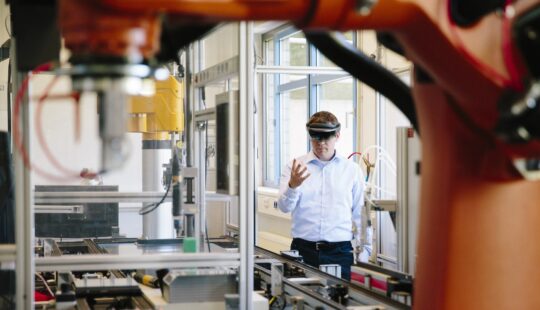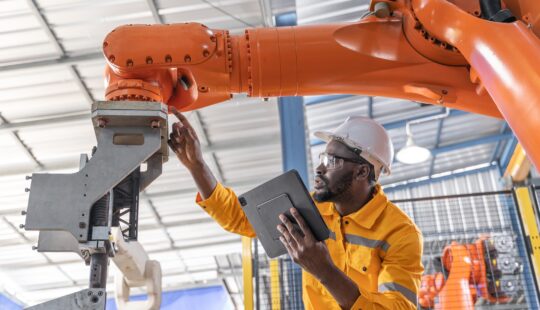How can farmers continue to feed a growing population sustainably with increasingly unpredictable weather and more demanding customer needs?
In the past, farmers were reliant on experience passed on from generation to generation, the Farmer’s Almanac, or other methods to plan and carry out their planting, harvesting, storage, and delivery processes. That said, the volume of agricultural food products was only a fraction of what is produced today and the goods were transported over shorter distances, making storage and transport less complicated.
If the farmers of over 100 years ago could see the world today, they would be astonished at the level of industrialization we have reached in agribusiness – and things are only moving faster. As an example, agriculture in 2050 will need to produce almost 50% more food, feed, and biofuel than it did in 2012 to meet demand.
Today’s biggest business challenges call for agility, resilience, and innovation. Responding to changing markets and better serving customers is on the top of everybody’s to-do list. Also, running companies sustainably has become a business imperative – that includes farming businesses.
If observation, experience, and intuition helped farmers to improve their margins in the past, today we have the possibility to collect and analyze data from across the entire value chain. With SAP Intelligent Agriculture, an industry cloud solution from SAP, agribusiness companies can become more sustainable and efficient.
Digitalizing the Field at KWS SAAT
KWS is the fourth-largest seed and plant breeding company globally, delivering its seeds to farmers for planting. KWS offers high-quality seeds that farmers can trust to sustainably harvest reliable crop yields. To transform its business, the company has decided to digitalize its entire logistic value chain, from field to plant, plant to stock, and order to cash.
With SAP Intelligent Agriculture, KWS will be able to simplify collaboration with seed growers by putting field data to work. One way that SAP Intelligent Agriculture supports KWS is by helping to better plan seed farming processes in collaboration with growers, ensuring sustainability and maximizing efficiency, to produce the best quality seeds to offer in the marketplace.
Improving Farming Processes at Royal Eswatini Sugar Corporation
Another example of how SAP Intelligent Agriculture supports agriculture is SAP customer Royal Eswatini Sugar Corporation (RES). RES produces sugar and ethanol in the south of Africa and is now using SAP Intelligent Agriculture to help improve farming processes. Both the farmers and those working in the offices at RES can plan, execute, and monitor production. Giving smaller farmers access to data supports them in better predicting crop yields and enables RES to determine the most favorable time to harvest.
Helping Farmers Is a Win for Everyone
Helping farmers, especially family and medium-scale ones, be successful is an incredible win for all involved. By allowing these farmers to be digitally connected to a larger enterprise, it keeps them competitive while ensuring a predictable income since the farmers can better plan their crops. Come harvesting time, this allows farmers in remote areas to create more jobs, which in turns supports the entire community.
Farming is becoming data driven. There is a significant increase of relevant data available from fields and farms that can be leveraged to drive better decisions. Learn more about SAP Intelligent Agriculture, an industry cloud solution from SAP and 2022 Hasso Plattner Founders’ Award winner.
In addition, explore the industry cloud next practice theme infographic and video.
Register now for post-event, on-demand SAP Sapphire Virtual to see all the sessions, including “How to Manage the Dynamics of Industry Convergence.”
Sven Denecken is senior vice president and chief marketing and solutions officer for Industries and CX at SAP.



